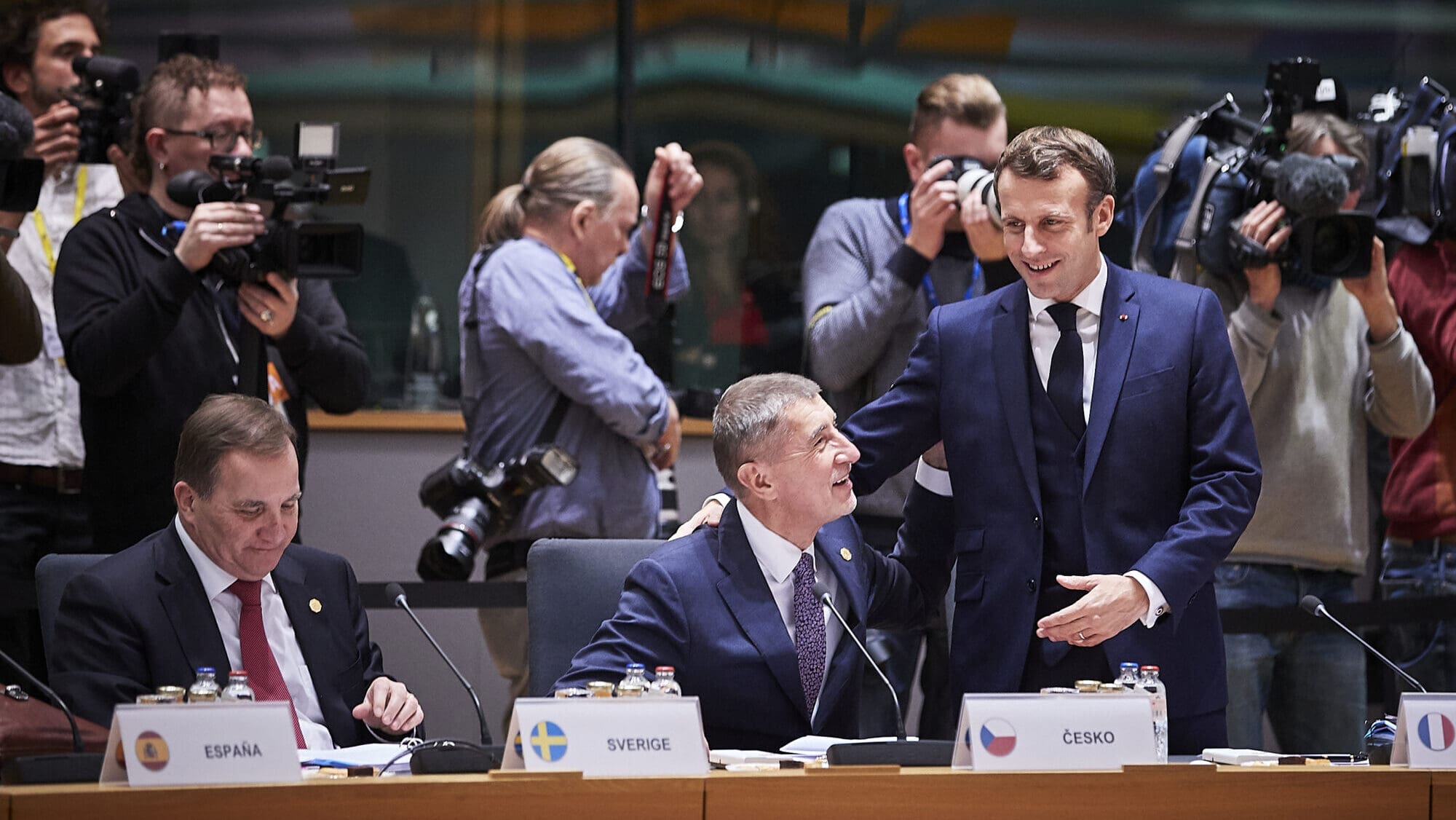
French President Emanuel Macron (right) with former Czech Prime Minister Andrej Babiš (center). European Council
Photo: © European Union
The European Parliament’s liberal Renew group—headed by French President Emmanuel Macron’s Renaissance party—might be left with fewer MEPs after the election and may even lose a future governing party over political differences, particularly on migration.
Former Czech prime minister Andrej Babiš’s liberal-conservative, populist ANO 2011 (‘YES,’ or ‘Action of Dissatisfied Citizens’) party, a current member of Renew, is considering switching European Parliamentary groups after the election.
In a lengthy interview with the Czech daily Deník, published on Monday, June 3rd, Babiš explained that he no longer considers his party a good fit with the rest of the Renew group due to how the majority of the EU liberals voted on certain provisions of the Migration Pact and the Green Deal. That said, the former PM was careful enough not to say anything concrete.
“We don’t know what faction we will be in. We want to be a rich bride, maybe we’ll be [in Renew], maybe we won’t,” Babiš said when asked about his criticism of policies that are supported by the liberal mainstream, adding that he became a Renew member only because he speaks good French and has contacts in Paris and Luxembourg.
Now, however, Babiš might be looking for allies closer to home. Even back in 2019, during the last election, he was seeking cooperation with Central Europe’s conservative, sovereigntist countries within the Visegrad Group (V4), made up of Poland, Hungary, Slovakia, and Czechia.
“We first consulted with the Renew, and then I went to the V4, where I said to [Hungarian PM Viktor] Orbán: ‘Viktor, they are up to something on you again.’ I was always looking for allies,” Babiš said. Orbán’s national-conservative Fidesz party was at that time still a member of the European People’s Party (EPP), while the current Slovakian governing party, PM Robert Fico’s Smer, was still sitting in the social-democrat (S&D) bloc.
Since then, both Fidesz and Smer have left their respective groups, and with ANO looking to defect from the center-left, all three parties are expected to join sovereigntist conservative blocs in the next parliamentary term—either in the European Conservative and Reformist (ECR) group (home of Poland’s Law and Justice (PiS) party and led by Italian PM Giorgia Meloni’s Fratelli d’Italia)—or the Identity and Democracy (ID) group under the banner of Le Pen’s National Rally.
Babiš refused to allude to where he would rather see his party go, but if he does quit Renew for the Right, the choice seems already made for him. ECR already has a Czech member party (ODS), which is part of current Prime Minister Petr Fiala’s center-right government and therefore constantly criticized by the Babiš. Joining the same group would be unimaginable at this point, also because ANO is looking to dethrone the three-party coalition at its first chance, reclaiming Babiš’ lost premiership.
In turn, the ID group also has a Czech party (SPD), but one that is much smaller and so far not considered a direct challenger to ANO (looking to finish in fourth place with two MEPs), which means the party might ironically defect from Macron’s group to join the French president’s biggest competitor, Marine Le Pen’s populist bloc.
Babiš’ opposition party is well on its way to dethroning the current PM Petr Fiala’s three-party center-right coalition Spolu (‘Together’). The latest projections put ANO around 32%—resulting in as many as 8 MEPs out of the country’s 21 total—while the governing parties are looking to send only 4 MEPs to the center-right EPP group and 3 to the conservative ECR.
If the party does manage to humiliate the governing coalition with a large margin, it might even use the momentum to demand snap elections.
According to Babiš, the EU election in Czechia is but “a referendum” on the current Fiala government. “This is a prestigious election for us, so we would like to win it. We have a program for the citizens of the Czech Republic, while the ruling parties just want to defeat Babiš,” he summarized the stakes.
